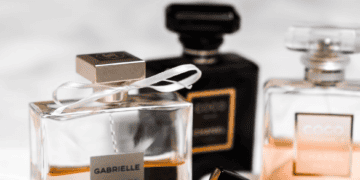The global luxury cosmetics industry, which includes well-established brands like Chanel, Dior, and Armani, boasts a rich history spanning several decades. Currently, the personal luxury goods market surpasses $300 billion, and within this, the luxury cosmetics sector has been steadily expanding, with an estimated value of over $60 billion and ongoing growth. In this article, we will examine the dynamics of the luxury beauty market, explore the preferences of consumers, and discuss emerging trends.
Analysis of Luxury Beauty Buyers in the United States Statistical data reveal that a significant portion of U.S. adults who purchase beauty products exhibit a propensity for acquiring luxury beauty items. Among the various product categories, fragrances are the most popular luxury beauty products, preferred by 27% of U.S. beauty consumers. This is followed by facial skincare (25%), hair care (24%), and makeup (19%).
Celebrity-Owned Beauty Brands and Their Appeal to Gen Z Celebrities have actively embraced the luxury beauty trend by establishing their own brands to expand their influence and earnings. Notable celebrity-owned brands include Fenty Beauty by Rihanna, Lady Gaga’s Haus Labs, and Kylie Jenner’s Kylie Cosmetics. Sixty-one percent of U.S. adults are acquainted with these celebrity brands, and data indicates a growing popularity. Among those aware of these brands, 17% have made purchases, and 10% intend to do so in the future.
These brands are particularly favored by adults aged 18-24, with 46% having made a purchase and 22% intending to do so. Moreover, women and non-binary individuals show a strong affinity for celebrity cosmetics. The connection between celebrity-owned makeup and social media influencers is apparent, as 73% of those who have bought celebrity-owned makeup have been influenced by social media influencers’ recommendations.
The popularity of specific celebrity brands can vary, potentially affecting market reach. Among the leading celebrity-owned brands, 75% of consumers likely to repurchase identify as fans of Lady Gaga and Alicia Keys, followed by Rihanna (59%), Jennifer Aniston (54%), and Kylie Jenner (48%).
Exploring the Motivation for Choosing Luxury What motivates consumers to invest in luxury cosmetic products? Luxury cosmetics are typically distinguished by their premium ingredients and packaging, often retailing at double the price of average beauty products. Nevertheless, U.S. consumers continue to embrace prestige and luxury beauty purchases, especially within the hair care and fragrance categories. This trend may be attributed to the perception of luxury cosmetics as a form of wellness and self-care.
For many consumers, a luxury purchase is considered a form of indulgence, and it is common for Americans to indulge in various ways. Individuals who purchase luxury cosmetics are more likely than the general population to spend on luxury designer goods or indulge in self-care experiences such as physical pampering and fine dining.
This notion is reinforced by the fact that 23% of Americans view shopping as a form of self-care, a sentiment that is seven points higher among luxury beauty users. While not all self-care purchases fall within the luxury category, the gap between luxury and non-luxury purchases may be narrowing.
The Future of Luxury Cosmetics The market for luxury cosmetics appears to be positioned for growth, influenced by factors like social media impact, the desire for special indulgences, and the perpetual fascination with beauty. However, given economic uncertainties and rising prices, the question remains: can luxury cosmetics maintain their appeal in the long run?
Additional Insights from CivicScience InsightStore:
- Over 40% of luxury beauty users prioritize brand over price when shopping for health and beauty products, in contrast to only 23% of non-luxury beauty buyers.
- A significant proportion of recent Sephora shoppers (73%) have purchased celebrity-owned beauty brands, compared to Ulta shoppers (66%) and Macy’s shoppers (45%).
- Skin care ranks as the top category for celebrity-brand users, with 49% expressing a strong passion for it, surpassing the interest in hair care (41%) and makeup (38%).
- Consumers planning to conduct the majority of their holiday gift shopping at specialty chain stores (e.g., Gap, Best Buy) are more likely to be luxury and celebrity-brand beauty buyers.
Stay informed with supply chain news on The Supply Chain Report. Free tools for international trade are at ADAMftd.com.
#LuxuryCosmetics #BeautyIndustry #LuxuryBeauty #CelebrityBeautyBrands #FentyBeauty #HausLabs #KylieCosmetics #FragranceLovers #SkincareTrends #HairCare #MakeupLovers #GenZBeauty #SocialMediaInfluencers #LuxurySelfCare #BeautyIndulgence #LuxuryShopping #CelebrityInfluence #CosmeticTrends #BeautyMarketGrowth #USBeautyConsumers #SephoraBeauty #UltaBeauty #MacyBeauty #SkinCareLove #HairCareTrends #MakeupAddicts #LuxuryIndulgence #BeautyProducts













